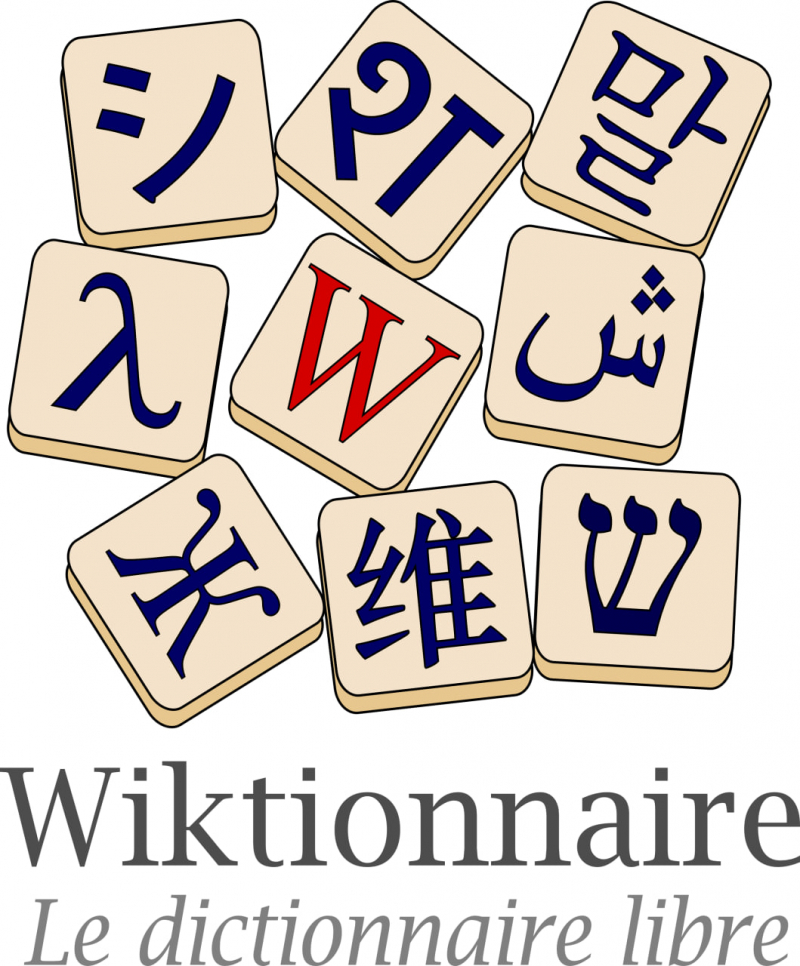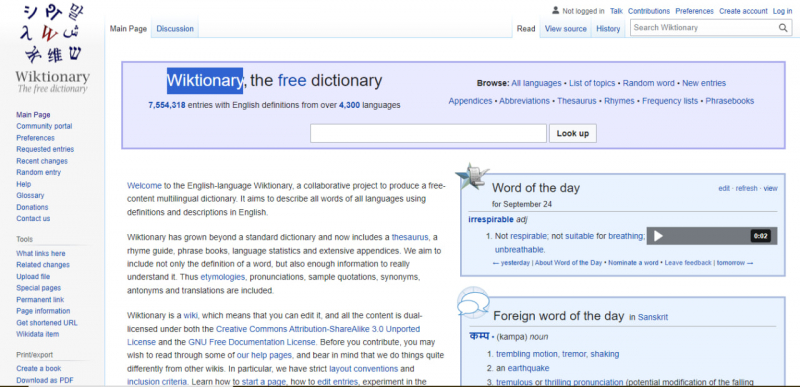Wiktionary

Wiktionary, a project under the umbrella of the Wikimedia Foundation, was initiated in December 2002 as a collaborative and open-content online dictionary. It was designed as a sister project to Wikipedia, with the primary objective of creating a comprehensive lexical database encompassing many languages, words, and meanings. Wiktionary operates on the principles of open content, permitting unrestricted access, editing, and contributions from users worldwide.
Wiktionary provides definitions, translations, and linguistic insights in multiple languages. Entries within Wiktionary include definitions, pronunciations, etymologies, translations, and information regarding word usage and grammatical characteristics. Users can also find examples, synonyms, antonyms, related terms, and links to external sources within entries.
Both registered users and anonymous contributors play essential roles in adding, editing, and refining definitions and linguistic information. The Wiktionary community collaborates diligently to uphold the quality and accuracy of entries, abiding by guidelines and policies that ensure consistency and reliability.
Wiktionary is a valuable resource for language learners, linguists, writers, and anyone needing word definitions and translations. It is often used with other language references for research, translation, and language study. The project aims to cover a vast array of languages, from major global languages to regional and less widely spoken ones, making it an indispensable tool for exploring the richness of human language. As a living project, Wiktionary continually expands its language coverage and content through the dedicated efforts of its contributors.
Official website: https://en.wiktionary.org/wiki/Wiktionary:Main_Page











